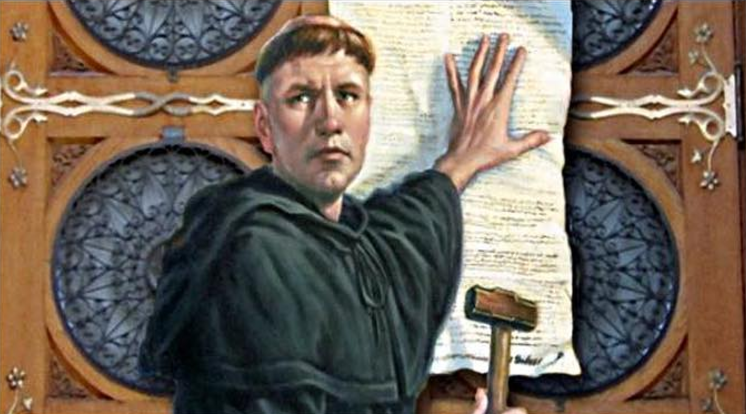Culture August 8, 2017
Happy Birthday to the document that sparked the Protestant Reformation.


Martin Luther’s 95 Theses celebrate their 500th anniversary on Halloween in 2017. They were a major driving force behind the beginning of the Protestant Reformation in Europe.
However, many people don’t know what they are, exactly.
If this is you, don’t worry. You won’t have to wrack your brain to remember what you learned in your history or religion class. ENTITY compiled a list answering the who, what, when, where, why and how of the Martin Luther 95 Theses so you can join in on the celebration.
The Martin Luther 95 Theses are 95 statements explaining a Protestant interpretation of what penance and the penalty for sin means in the Bible.
The 95 Theses are also known as the “Disputation on the Power and Efficacy of Indulgences.”
In the document, Martin Luther claims that selling indulgences to finance the church and construction costs was immoral. Religious officials couldn’t control what happens in Purgatory and it was wrong to give people false hope and information about eternal salvation.
Martin Luther’s 95 Theses was mainly written to dispute the sale of indulgences in the Catholic Church. Indulgences offered a way to forgive sins by paying money to the church. Catholic officials convinced the German parishioners that their money could absolve themselves or the souls currently in Purgatory.
This, in turn, provided false hope. Parishioners believed that paying off the church would guarantee their eternal salvation in Heaven.
Martin Luther, however, felt it was wrong to mislead Catholics.
But instead of sitting back and keeping his opinions to himself, he wrote all of his quips down and mailed them to Catholic officials. To really drive his point home, it is alleged he attached them to the Catholic Church door.
However, his theses weren’t meant to start a revolution. Rather, he intended to start an academic discourse on the topic.
Martin Luther wrote the 95 Theses in 1517. He then sent them to the archbishop Albert of Brandenburg in an attempt to start the conversation. In addition, it is said he posted them to the door of the “All Saints” Wittenberg, Germany Catholic Church on Oct. 31.
Martin Luther was a jack of all trades during his lifetime. Moreover, he was a professor of theology, composer, priest, monk and religious activist.
Another positive quality about Luther was that he stayed true to his beliefs. In fact, he took excommunication from the Catholic Church over Pope Leo X’s request to denounce his religious stance.
Despite Luther being considered a threat to the Catholic Church and being accused of heresy, he maintained that his writing wasn’t a personal attack on the Catholic Church. Rather, he wanted to highlight what could be examined, changed and bettered.
Martin Luther’s 95 Theses spread instantly. He was definitely successful in his goal of starting the conversation about the intersection of the economy and religion.
However, a conversation wasn’t the only thing started. The 95 Theses also greatly impacted the Protestant Reformation.
The Protestant Reformation later led to multiple factions of Christianity outside of the Catholic faith, which Catholics still find faults with today.
But, all hope wasn’t lost by the Protestant Reformations efforts. During the Catholic Counter Reformation, there was an increase in the acquisition of religious knowledge and a decrease in indulgences and economic misconduct.
However, it also helped spark capitalism because it changed the way people considered themselves and their place in society. It emphasized working hard to fulfill your duty to society. New Protestants found this to bring a closer connection to God and salvation than the previous Catholic view.
And now that you understand Martin Luther’s 95 Theses, you can join in the 500th anniversary discussions.